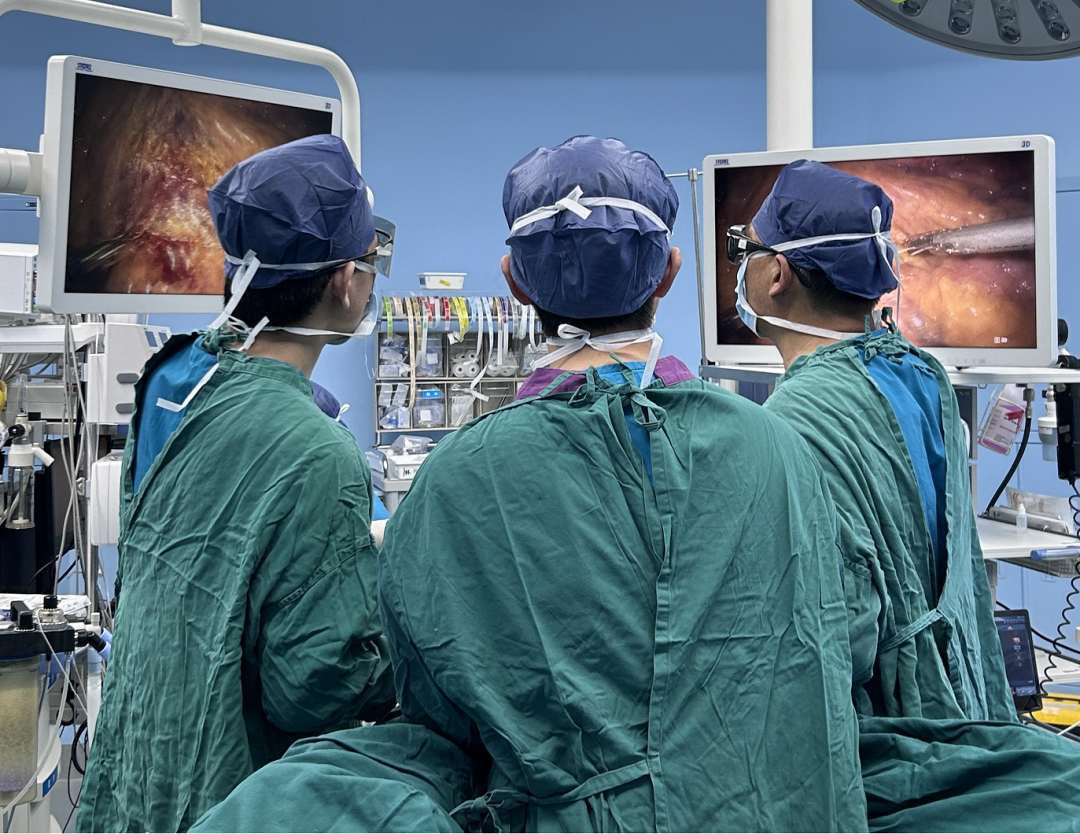The First Affiliated Hospital, Zhejiang University School of Medicine (FAHZU) recently performed the world's first 3D laparoscopic-assisted living-donor small bowel transplantation. A critically ill two-year-old girl received 1.8 meters of the small intestine from her 29-year-old mother. Both the mother and daughter have currently been doing well and the little girl is about to be discharged from the hospital soon.The patient, nicknamed as Nini from Henan province, China, was diagnosed with acute intestinal volvulus in early 2022. Because of subsequent necrosis, most of her bowel were removed. Despite parenteral nutrition support, her condition continued to deteriorate along with hepatic impairment and catheter-related sepsis. The Nini's mother, who had been pregnant with her second child, came to the Intestinal Transplant Center for help.
Since the establishment of the Intestinal Transplant Center in October, 2019, under the leadership of Prof. LIANG Tingbo, President of FAHZU, and Professor WU Guosheng, Director of the center, a series of complex and difficult small bowel transplantations have been successfully implemented, with the number of surgeries exceeding 100.
After carefully evaluating Nini and her mother, Dr. WU suggested living donor transplantation and proposed using 3D laparoscopic surgery to procure a segmental bowel for grafting. Compared with decreased donation, this approach has advantages including shorter cold ischemia times, better HLA matching, easier application of desensitization therapy, and elective nature.
On June 2023, the transplant team procured a segmental small bowel using 3D laparoscopy from Nini's mother and successful grafted into this little poor girl. The total operation time was approximately five hours and was uneventful.
After short stay in the intensive care unit, Nini was transferred to a regular ward and the precious bowel gift from her mother has been functioning well. She started to take oral food and will be discharged soon.

Dr. WU said that the intestinal transplant program has performed more than one hundred cases of small bowel transplantation since its establishment in October, 2019. The patient and graft survival have steadily been improving. The recent publications from his team show that LDITx is a valuable treatment option for patients with end-stage intestinal failure. Improved immunosuppression, better HLA matching, and shorter cold ischemia times were associated with reduced rates of rejection, viral-mediated infection and improved graft survival. In addition, living donor graft resection is associated with minimal short- and long-term morbidity and remains an attractive alternative for potential recipients when suitable deceased donors are unavailable.


